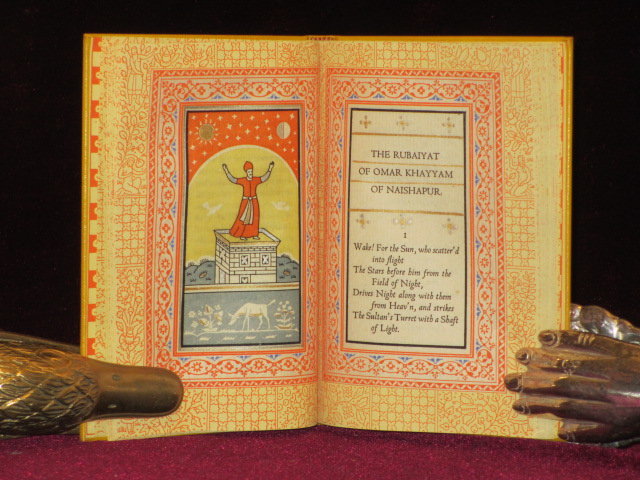May 18 has been considered as Khayyam Day to celebrate and commemorate the world renowned Persian poet and mathematician.
Iran (IMNA) - Omar Khayyam, such a worldwide figure in science and literature well understood the transience of life, the inevitability of death and importance of seizing all moments human allotted. Omar Khayyam was an outstanding Persian figure whose full name was Ghiyath al-Din Abul Fateh Ibn Ibrahim Khayyam. Indeed, he was a well- known mathematician, astronomer, philosopher and also poet who lived between 1044 and 1123 CE.
According to Bertrand Russell in History of Western Philosophy, Khayyam was the only man known to him who was both a poet and a mathematician. His worldwide achievements are remarkable in the world of science and literature. For example, he reformed the solar calendar in 1079 CE and also his work on Algebra was outstanding throughout Europe.

Outside the world of mathematics, since 1839, when Edward Fitzgerald published Khayyam’s Rubaiyat (quatrains) from Persian to English, he became one of the most well-known classic figures in the world of literature.
In this respect, by the 1880s, Khayyam’s Rubaiyat became extremely popular in English-speaking world. FitzGerald’s translation of Khayyam’s Rubaiyat has inspired different versions of translation not only in English language but also in many other languages.
In this regard, Oscar Wilde, famous Irish poet and playwright, placing Khayyam’s Rubaiyat alongside Shakespeare’s sonnets and describe it as “Masterpiece of Art”. Moreover, Gilbert Keith Chesterton, English writer and philosopher, claimed that the Rubaiyat is the bible of the carpe diem religion.

Accordingly, numerous Omar Khayyam associations were formed. The members of these societies held regular meetings on different subject matters regarding his Rubaiyat. As a matter of fact, between Eastern and western people there is a wide interest in Omar Khayyam and from past to present between scholars; his works have been examined precisely in wider perspective of Persian and oriental history, literature and culture in academic environments.

May 18 marks the birthday of Iranian polymath, Omar Khayyam. In such a gorgeous day, Iranians annually celebrate and commemorate world renowned Persian poet and called this occasion as Khayyam Day. In fact, this Persian poet well understood the transience of life and inevitability of death. So, he believed that the only way is to seize the life and all moments human allotted on the earth. In this respect, some of his most famous verses are following:
XXIV
Ah, make the most of what we yet may spend,
Before we too into the Dust descend;
Dust into Dust, and under Dust to lie
Sans Wine, sans Song, sans Singer, and – sans End!
XXXV
Then to the lip of this poor earthen Urn
I lean’d, the Secret of my Life to learn:
And Lip to Lip it murmur’d – ‘While you live
Drink! – for, once dead, you never shall return.’
LXIII
Oh, threats of Hell and Hopes of Paradise!
One thing at least is certain – This Life flies;
One thing is certain and the rest is Lies;
The Flower that once has blown for ever dies.

Provided by: Elahe Jalali
Your Comment